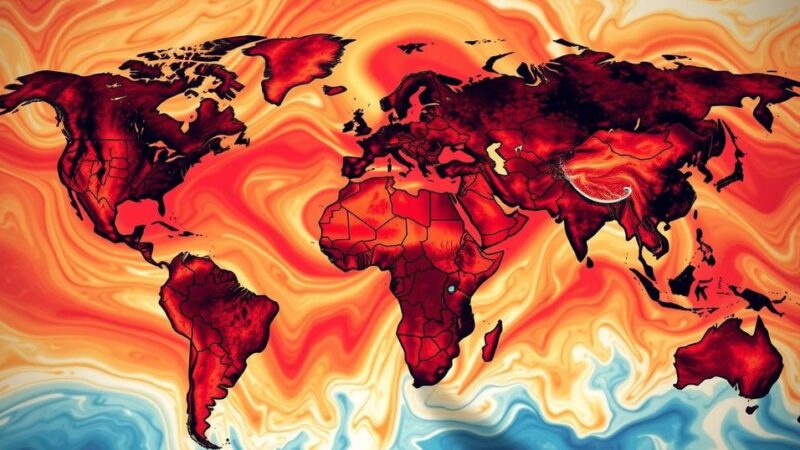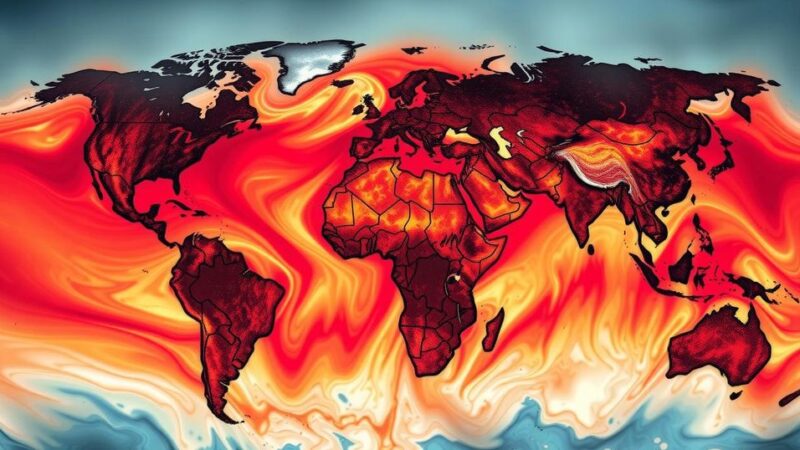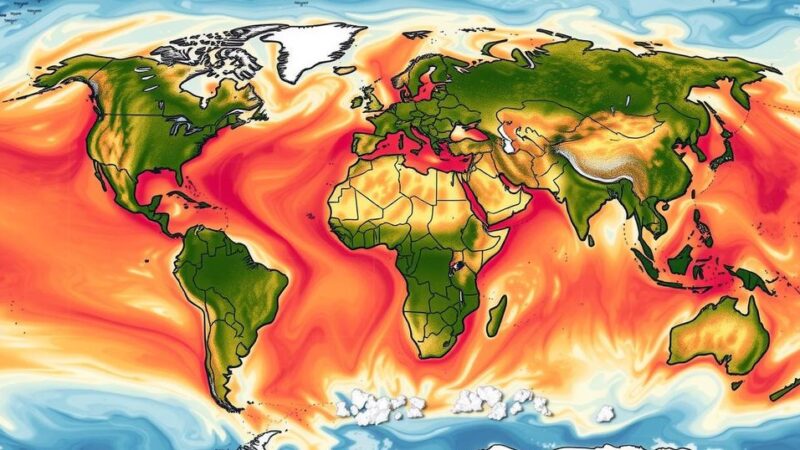In the years 2023 and 2024, the world experienced unprecedented heat, impacting communities with extreme weather events. Global temperatures are projected to remain high due to human-induced climate change and natural variations, leading to significant loss and damage. The complexities of climate influences complicate predictions but underscore the critical need for immediate and cohesive climate action.
The planet has recorded its hottest years on record in 2023 and 2024, with an alarming increase in average temperatures driven primarily by human activities. According to the European Union’s Copernicus Climate Change Service, 2024 saw temperatures rise 1.6 degrees Celsius above preindustrial levels. This trend has led scientists to predict further elevated temperatures, even as the effects of weather phenomena, such as El Niño, fluctuate widely. Heat-related incidents have wreaked havoc globally, from severe floods in Spain to heatwaves in Saudi Arabia, resulting in tragic losses of life and property. Reports indicate that while immediate climate impacts appear severe, there are complex interactions at play, including volcanic activity and changes in solar energy striking the Earth that may have contributed to recent warmth. Despite significant advancements in climate science, uncertainty in predicting future temperature variations persists, highlighting the urgency for cohesive international climate action to mitigate the impending impacts of climate change.
The current climate crisis emphasizes a critical rise in global temperatures, with 2023 and 2024 setting new records. These heatwaves have been exacerbated by factors such as greenhouse gas emissions, El Niño, and other natural events that affect weather patterns. As global communities grapple with heat-related disasters, political responses to climate change have evolved, yet the effectiveness of these responses remains under scrutiny. The interplay between natural and anthropogenic factors complicates attempts to analyze past climate data and predict future conditions, thus making it vital for coordinated global initiatives to address the changing climate holistically.
The record-high temperatures of 2023 and 2024 signal a precarious future wrought with unprecedented climatic shifts. As nations confront the multifaceted consequences of extreme weather, the urgent need for effective climate action and international cooperation becomes evident. A comprehensive understanding of both human and natural influences on climate patterns is essential for formulating strategies to mitigate potential crises. Without decisive global action, the toll on lives, ecosystems, and economies may become insurmountable.
Original Source: www.washingtonpost.com







